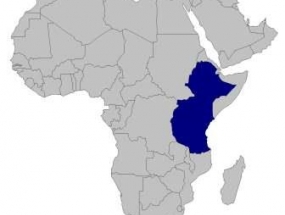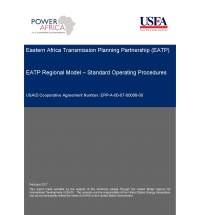Eastern Africa Regional Transmission Planning Partnership (EATP); Phase II: Eastern Africa Regional Load Flow Training and Analyses
client: USEA, USAID
type: System study and Education
finishing date: September 2017
team: Nebojsa Jović - Project Leader, M. Vukovic - Consultant, B.Sijakovic, M.Ivanovic
The Eastern Africa Regional Transmission Planning Partnership (EATP) was established in 2014 to foster regional cooperation in transmission planning and analysis. The EATP has the following objectives:
- Promote regional cooperation and harmonized approaches to electricity transmission planning
- Improve the capacity of East African transmission utilities to construct complex forecasting models and conduct network and economic analyses of projects of regional significance
- Identify priority investments in electricity transmission system to enhance regional electricity trade and the reliability of national and regional power systems
The following tasks are performed under this Phase II of the EATP project:
- Update and distribute the 2020 medium term and continue to develop the 2025 long term Regional Load Flow models on semi-annual basis to ensure that changes to national network development plans are reflected accurately in the national and regional planning models
- Improve the accuracy of the 2020 Regional Load Flow model by maintaining the EATP Generation and Transmission Project Tracking Database
- Improve the ability of the EATP members to use the Power System Simulator Software for Engineers (PSS/E) network planning software to prepare national and regional load flow and dynamic models
- Performing of power system study for interconnection of the Ethiopia, Kenya and Tanzanian grids focusing on the impact of the power flow on the Kenyan grid.
Type of services provided:
- Data collection and analyses
- Regional model development
- Load flow analyses
- Network security assessment
- Conduction of trainings


